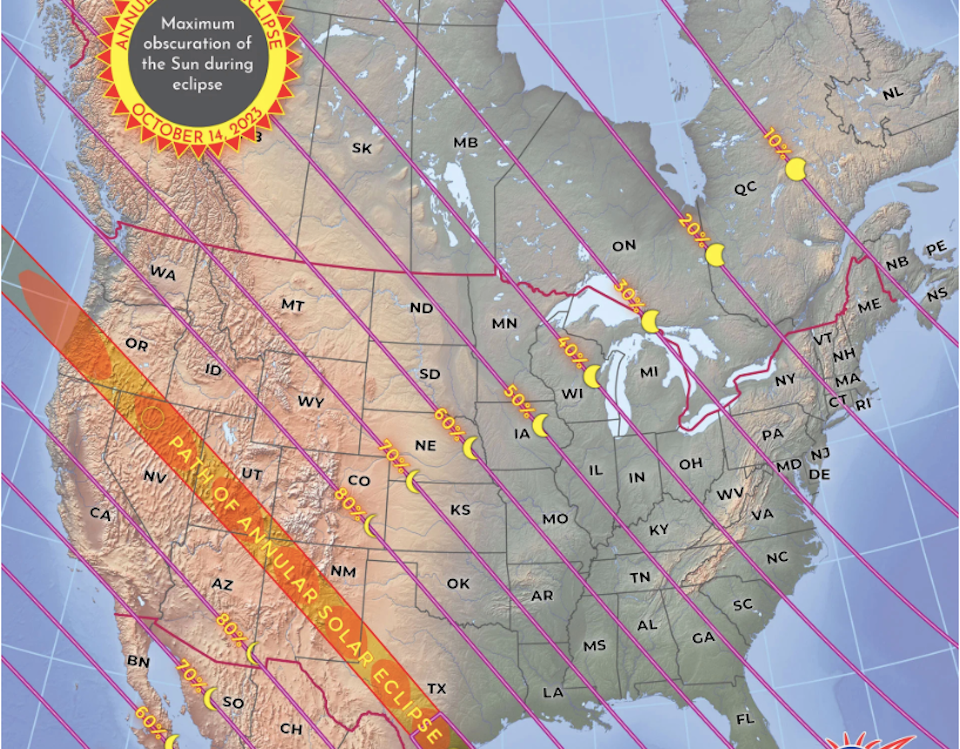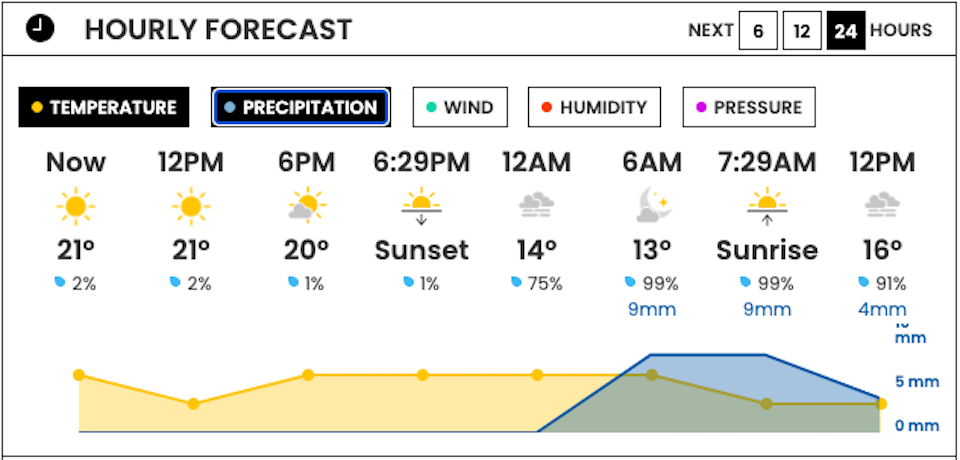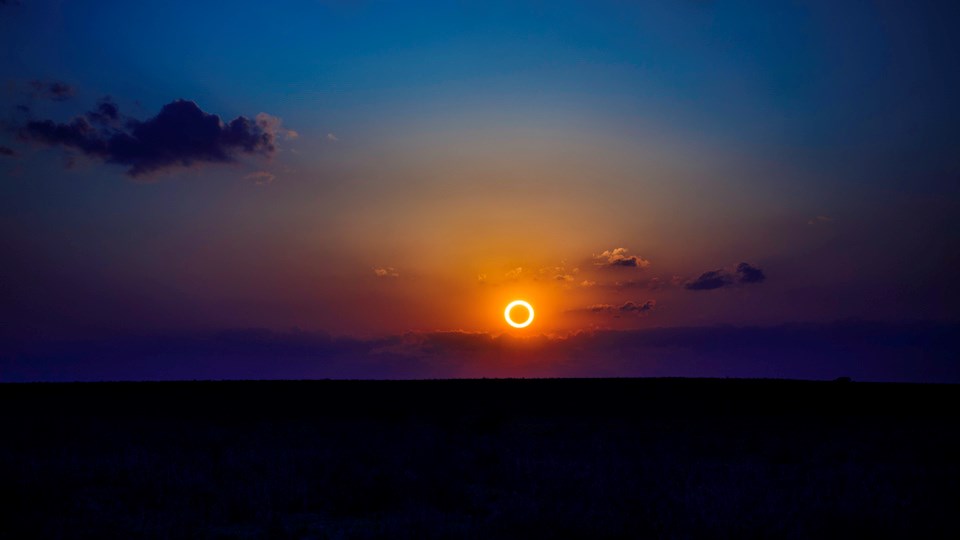On the eve of an annular eclipse in Vancouver, sky-watchers have been monitoring the forecast for viewing conditions -- and they probably aren't thrilled.
B.C. is the best place to view the annular solar eclipse in Canada on Saturday, Oct. 14, but only if the Metro Vancouver weather forecast stays clear.
A stormy pattern is expected to replace a decidedly dry one, which might be a boon for parched soil but will make it difficult to view the rare space event. However, if the clouds clear, locals will be able to feast their eyes on an exciting solar spectacle.
During the rare event, the moon moves between the sun and Earth and the display will be visible in parts of the United States, Mexico, and many countries in South and Central America, according to NASA.
The eclipse is considered "annular" because the moon will be at its farthest point from Earth, making it appear smaller than the sun. Since the moon is farther away, it won't completely block the light from the bright star.
Locals will see the beginning of the partial solar eclipse at 8:08 a.m. and then observe it reach its maximum at 9:20 a.m. It will end at 10:38 a.m., according to timeanddate.com.
NASA's map shows that Metro Vancouverites should observe roughly 70 to 80 per cent of the eclipse, while people residing in the B.C. Interior or near the Alberta border should see approximately 60 to 70 per cent of it.
Moving into the rest of Alberta and into Saskatchewan, sky-watchers would catch between 70 and 60 per cent, while folks in other parts of Canada will see even less. In the Maritimes, for example, people will see less than 10 per cent of the display, meaning it won't really be visible.

How to protect your eyes during the lunar eclipse event
Staring at the sun during this event can result in immediate and severe damage, even when the moon is in front of this. Also, since this isn't a total solar eclipse, the moon won't ever completely cover the sun.
The bright sun will "instantly cause severe eye injury" if you observe it through a "camera lens, binoculars, or a telescope without a special-purpose solar filter secured over the front of the optics," according to NASA.
Regular glasses or sunglasses will not protect your eyes from sun damage. Use solar viewing glasses (eclipse glasses) or a safe handheld solar viewer. NASA notes that "safe solar viewers are thousands of times darker and must comply with the ISO 12312-2 international standard."
Before you use your special eclipse glasses or a handheld viewer, inspect them for tears, scratches, or damage. Throw them away if they have been damaged. Supervise children who are using them to view the eclipse.
Metro Vancouver weather forecast and annular eclipse viewing potential
And now for the bad news. While the solar eclipse is technically viewable from the Lower Mainland, nearly all neighbourhoods across the region are expected to receive rain on Saturday.
Several low-pressure systems forming off the B.C. coast will cause a shift to a cooler, wetter pattern heading into the weekend, Environment Canada meteorologist Yimei Yi told V.I.A. in a previous interview.
The first bout of wet weather is expected to intensify on Saturday, producing 10 to 20 mm of rainfall throughout the day, which is when the solar event is slated to occur.
Weatherhood shows forecasts for specific neighbourhoods across Metro Vancouver, including hourly breakdowns throughout each day, such as how much rain is expected to fall at a given time. This means you can keep track of updates to the forecast if you plan to head out and potentially avoid the wetter places. While it may seem surprising, some places, even ones that are relatively close together, may not experience the same weather.
There is often a great deal of variation in weather across the region. For now, however, places in the City of Vancouver, such as the Downtown Centre Weatherhood station, show that rain is expected to be falling pretty hard from 6 a.m. onward.
As indicated in the graphic below, there is about 9 mm of precipitation is expected to fall at 6 a.m. and then at sunrise, around 7:30 a.m. After this time, however, it looks like the rainfall amounts are expected to taper off.

What if the clouds don't part in time for the solar eclipse?
If you aren't able to see the event in Metro Vancouver, NASA will be streaming it live on its "The Ring of Fire" broadcast from Kerrville, Texas and Albuquerque, New Mexico.
The NASA broadcast will also include demonstrations, expert commentary, and views from across its path. The online event starts at 9:30 a.m. and ends at 10:15 a.m.




